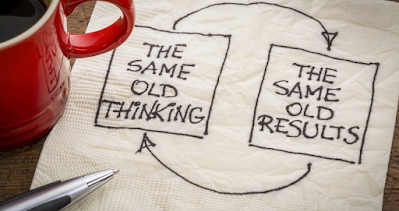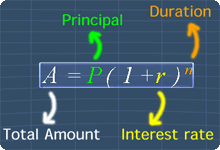Algorithms, or mathematics
When we’re young we begin by learning the steps to add – we’re given the rules and we must learn to repeat them – no questions asked. Why does carry forward work the way it does? Well, no questions asked.
To some extent, it is important to know how exactly to do a certain set of things while first learning maths. We may not be able to get anywhere in a subject if we’re unable to learn a few basic rules and know how to use them.
However, after a certain point it is important to bring in the spirit of mathematical thinking within each student too – something missing in almost every form of school math education. Mathematical miseducation is so common, we wouldn’t even see it. We practically expect a math class to look like repetition and memorisation of disjointed technical facts. A teacher might teach you the quadratic formula – invented by some very smart person somewhere in the world, and we’re simply supposed to apply it. Often what we really learn in school math classes is algorithms.
Mathematics is first and foremost, a form of reasoning. It allows us to formulate conjectures, justify facts, prove statements and come to conclusions. We do mathematics much more than we realise. We do mathematics when we question known procedures, innovate and come up with new ideas to solve problems. Mathematics is a fundamental part of human thought and logic, and integral to any attempt at understanding the world and ourselves.
On the contrary, the below is something one might expect in a usual school math class.
These are the sort of things that really kill a student’s interest in mathematics. What we essentially memorised is an algorithm to solve any sort of question related to compound interest – just the way a computer does. Why does the algorithm work? Does it even work? We wouldn’t care – just the way a computer wouldn’t.
The irony is that many students would go to a math exam thinking compound interest was the best chapter – all they needed to do is use the formula correctly and they would definitely get their marks. And this shows how deep the problem is. The subject is studied more for the marks in the final examinations than for the joy and spirit of learning.
A student might also ask, “What is the need to calculate all these values by hand? Is this not what the calculator was invented for?!” And in asking this, they’re absolutely right. Mathematics deals with the creation of these algorithms – not memorization and repetition of them.
It is the human mind which needs to come up with ideas and innovate. It is us who would need to think. And the essence of mathematics is really just learning this art of thinking and innovating.
It is this misunderstanding which causes a majority to come back from school saying they do not like mathematics. It may not be uncommon for a student to think that any math problem can be solved in a minute or less and if they cannot do it – the subject is just not meant for them!
So, who is at fault here - Is it the student? Is it the teacher? Or is the problem in the mindset of the society?
The major problem is the lack of true understanding of the subject of mathematics. Not just among the students, but in the entire society. As mathematics has been taught so poorly for so long, few adults have a genuine understanding of mathematics. Most adults, who have been mathematically miseducated themselves, would believe that mathematics involves performing a set of procedures invented by others. They have learned - and expect others to learn - mathematics as a set of rigid rules invented by others. This makes it really hard to bring about any real reform in the way mathematics is taught.
Mathematics is a subject that can change the world – and it is unfortunate that a lot of students do not ever get to see much of its magic in their education. If every student gets to see the power of mathematics, a subject where we create, we imagine and we innovate - maybe the day is not very far away when every student would come back home and say,
“Math? – Oh, who doesn’t love math.”
Thank you for reading!
Rushil.


Comments
Post a Comment